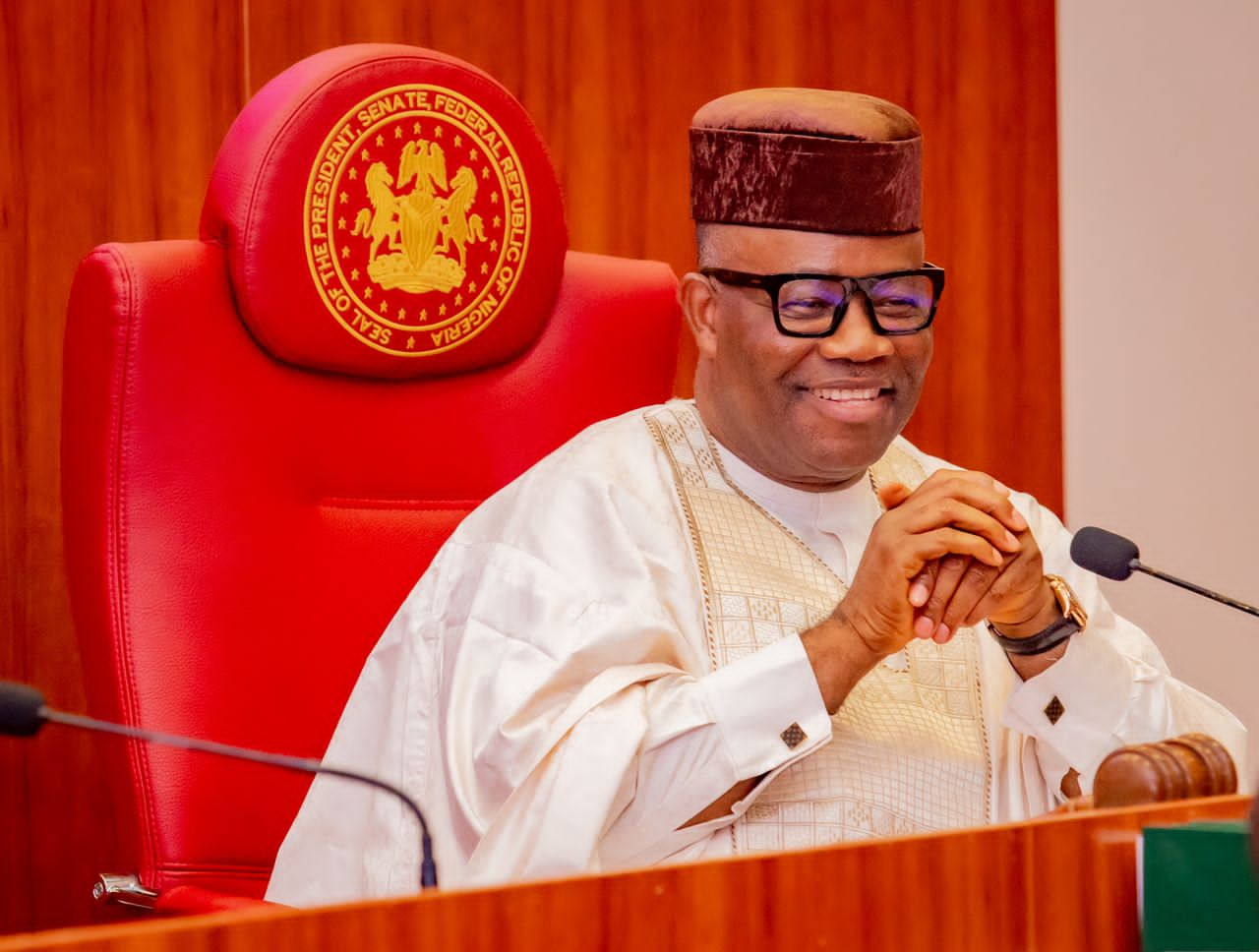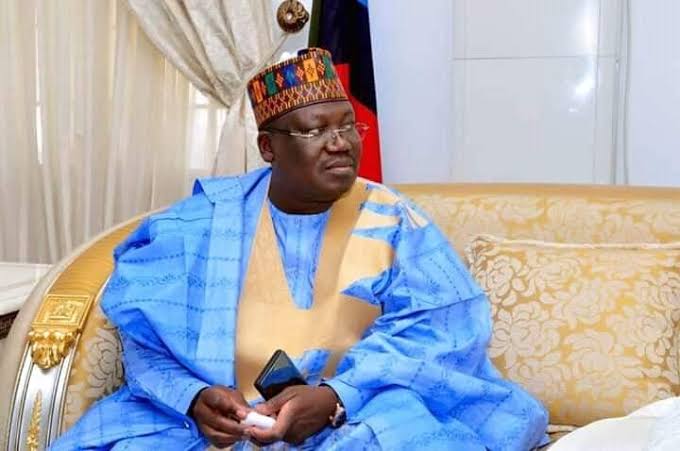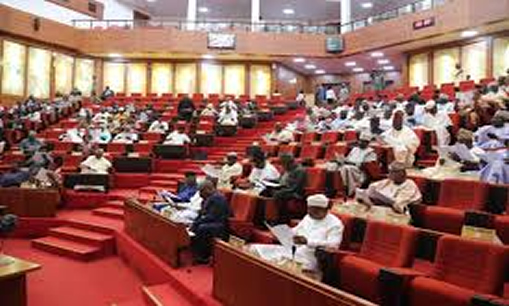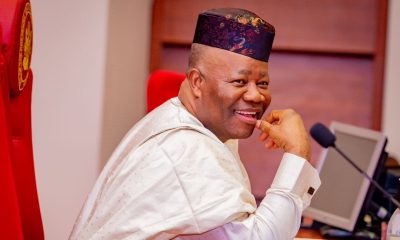Opinion
Sen. Ahmad Lawan @ 65: Celebrating a legendary strategist and feformist

By Dr. Ezrel Tabiowo
The Ninth National Assembly under the leadership of Senator Ahmad Lawan as Chairman and President of the Senate, made history as one with many firsts from championing reforms, to improving governance and raising the bar on the passage of critical and impactful legislation.

Lawan, before vying for the position of President of the Senate, understood the importance of having a legislative agenda, needed to provide direction and focus, as well as serve as an action plan for the upper chamber.
His legislative agenda, tagged, “A National Assembly That Works For Nigeria”, adopted a more cohesive and focused legislative approach different from others, which, aligned the actions of the upper chamber – in the aspect of guiding policy and lawmaking – with stated agenda items in a way that ensured that proposed bills were introduced in line with the Senate’s goals and outlined objectives.
He also understood that for Nigeria to witness improved economic stability and growth, there had to be a well-structured and balanced budgeting process that fostered fiscal discipline. Swinging into action, former Senate President Lawan, pushed for the restoration of the nation’s deformed budget cycle to the January to December timeline, upon assuming office in June 2019. This feat was considered one of his biggest accomplishments in office, besides the passage of landmark bills. The restoration of the budget cycle enhanced Nigeria’s credibility in the international arena, thus attracting foreign capital to us through access to capital markets.
Some other gains of the restoration of the budget cycle under Lawan’s leadership was that it allowed the Nigerian government to make the needed adjustments and improvements to our national budget in a way that paved the way for greater accuracy and predictability; and made the budget an effective tool for planning and decision-making.
Also, Ministries, Departments and Agencies of Governments (MDAs) were foisted with a shared sense of responsibility that made the effective and efficient use of public funds mandatory. Under Lawan’s National Assembly, an order was given by the then-President, Muhammadu Buhari, stopping heads of MDAs from leaving the country, and compelling them to defend their respective budget estimates before the relevant standing committees or risk zero allocation. This move empowered the National Assembly to carry out oversight duties in such an aggressive way that ensured transparency and accountability in government spendings. It is on record that for the first time in a very long while, MDAs recorded over ninety percent implementation figures from the execution of capital projects captured in their respective annual budgets between 2020 and 2022. The development contrasts sharply with the very low budget implementation figures churned out by ministries and agencies between 1999 and 2019, before Senator Lawan mounted the stage.
The former Senate President, in his usual genius, also demonstrated strong leadership and vision from having the foresight to introduce stopgaps to mitigate the frosty relationship between the Executive arm of government and the National Assembly, which characterised the 8th National Assembly.
Such stopgaps, besides envisaging to mitigate the friction between both arms of government – the Executive and Legislature – also sought a leadership approach to deal with problems likely to arise from bipartisan differences amongst lawmakers that were hitherto responsible for legislative gridlocks and the non-passage of critical bills in the past.
Lawan’s clear sense of direction and commitment earned him the full support of Senators from both the majority and minority parties in the Senate. This facilitated the smooth consideration and eventual passage of landmark legislations, which, previously, had defied passage in previous assemblies since 1999.
Against moves by external forces to compromise Senators, the Deep Offshore and Inland Basin Production Sharing Contract (Amendment) Act, 2019, was passed. Also passed were the Finance Act, the Companies and Allied Matters Act, which provides a regulatory framework for ease of doing business; the Bank and Other Financial Institutions Act; the Petroleum Industry Act, which overhauled the oil and gas sector in Nigeria to promote transparency, and ensure the equitable distribution of revenues, amongst others.
Senator Ahmad Lawan, also played a significant role in the passage of the Electoral Act 2022, which was signed into law by President Muhammadu Buhari on February 25, 2022. The new Electoral Act introduced several reforms and changes to the electoral process in Nigeria, including granting financial autonomy to INEC; introducing the use of the Bimodal Voter Accreditation System (BVAS) for voter accreditation and authentication; and strengthening the independence of INEC by making it more difficult for the President to remove INEC commissioners.
Senator Lawan, no doubt stands tall in the annals of Nigerian politics. He stands tall as a beacon of visionary leadership, exemplary service, and legislative excellence. He has consistently demonstrated commitment to the progress and prosperity of our nation, leaving an indelible mark on Nigeria’s legislative landscape.
Beyond his legislative accomplishments, Senator Lawan is also renowned for his diplomatic skills and ability to foster international cooperation. As a respected figure on the global stage, he has facilitated partnerships and agreements with other nations, promoting Nigeria’s interests and strengthening its position in the international community.
…Tabiowo is the Media Adviser to Senator Ahmad Lawan and writes from Abuja.

























